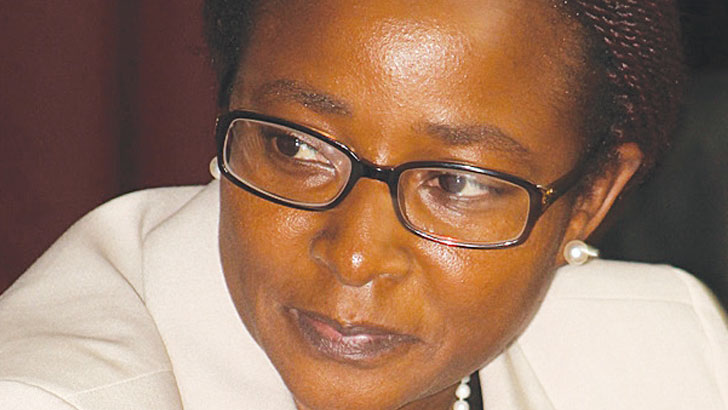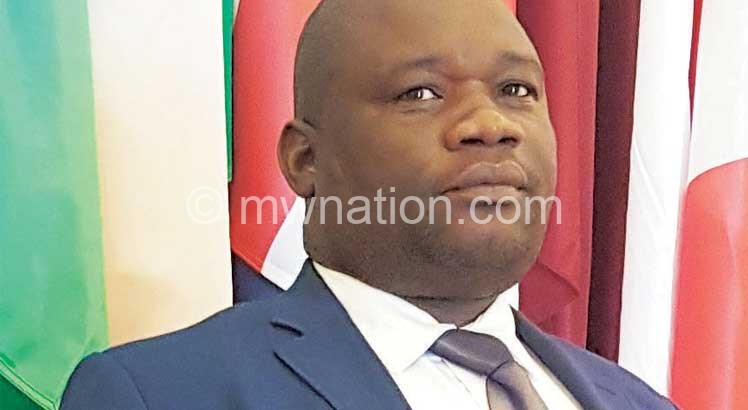IMF tough on forex audit
The International Monetary Fund (IMF) has set among conditions for a new extended credit facility (ECF) a special audit of Malawi’s foreign exchange reserves.
Other critical factors include addressing debt sustainability, commitment to a programme that restores macroeconomic stability as well as reclaiming budget support from the international community.

The fund, which was Malawi’s second largest multilateral creditor as of June 2021, has said this in its latest Staff Report on Malawi which The Nation has seen.
Reads the report in part: “The authorities have committed to undertake a special audit of foreign exchange reserves in response to non-complying disbursements [misreporting] under the 2018 ECF arrangement. Resolving the misreporting case would be a pre-condition for a new fund arrangement.”
On September 24 2020, President Lazarus Chakwera’s administration cancelled the ECF arrangement before requesting a new four-year ECF to be aligned with Malawi’s new long-term development strategy, Malawi 2063.
In addition, it was noted that some of the critical programme targets agreed for implementation in the cancelled ECF had already been missed.
Following the cancellation of the ECF signed by Peter Mutharika administration, the new government immediately started discussions with the IMF to develop a new ECF.

Discussions between Malawi and IMF have, however, taken longer than expected as Capital Hill still has outstanding issues to resolve with the fund, chief among them being misreporting on Gross Reserve Assets (GRA) and Net International Reserves (NIR) for the period 2018 to 2019 by the DPP administration.
The delay has prompted the IMF to demand a special audit on foreign exchange reserves ahead of the new ECF programme with Malawi.
Clarifying the fund’s position in an interview yesterday, IMF country representative Farayi Gwenhamo said: “Indeed, resolution of the pending misreporting case will be needed before moving forward with the new ECF.
“In this regard, the authorities have committed to undertake a special forex audit. Progress on this process will be critical.”
But she said the resolution of the misreporting case through an audit is one of the important elements to move ahead with the ECF as there were other three equally important factors.
Gwenhamo said in the first place authorities’ upfront actions are needed to address debt sustainability, including through engaging creditors.
She also said support from the international community, including through direct budget support, will be critical as will be Capital Hill’s commitment to an adjustment programme that would help restore macroeconomic stability.
Said Gwenhamo: “These are the other important three elements. We are referring to the audit as ‘special audit of RBM FX [Reserve Bank of Malawi foreign exchange] reserves’ to avoid confusion with any other audits that the authorities might be undertaking.”
Reacting to the fund’s position, Treasury spokesperson Williams Banda said in an interview yesterday government is committed to conduct the audit within the shortest period possible as demanded by the Bretton Woods institution.
He said government is also keen to conduct a credible audit with guidance from the IMF, but emphasised that before undertaking such an audit, it was imperative to define terms of references (ToRs) and the scope of work to the would-be auditors while also laying proper procurement procedures for the findings of the audit to be credible.
Banda said: “The audit will be timely conducted with adherence to the existing law, but with guidance from the IMF.”
In the latest staff report, IMF maintains that given the protracted balance of payments problem, Malawi is facing challenges in implementing economic programmes envisaged in MW2063 without support from the IMF and the international community at large.
Following the misreporting scandal, IMF said RBM has now started submitting foreign exchange reserve numbers at a higher frequency and has improved the quality of data reporting to avoid similar occurrences.
During a recent news conference in Lilongwe, Minister of Finance Felix Mlusu told journalists that misreporting is taken seriously by the IMF to the extent that if confirmed by the board, at times, authorities are required to refund the resources that have been disbursed after the successful reviews of the arrangement.
Two weeks ago, police arrested former minister of Finance Joseph Mwanamvekha and former RBM governor Dalitso Kabambe for allegedly presiding over “deceit” in the form of a potential misreporting case.
The two are accused of “masterminding the falsification of gross liability and net reserve base returns with intent to make the IMF believe that the government of Malawi was meeting conditions connected with the extended credit facility.





